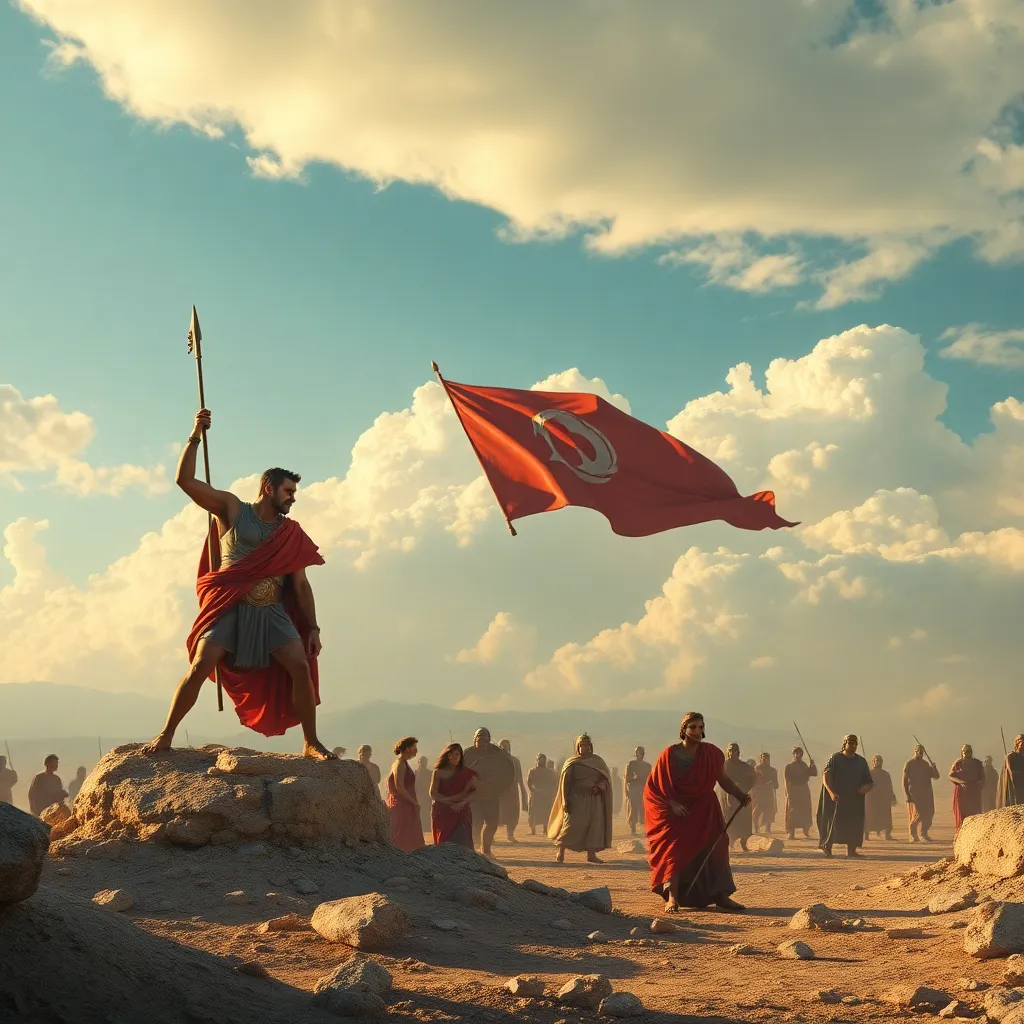The Significance of the Trojan War in The Iliad
I. Introduction
The Iliad, attributed to the ancient Greek poet Homer, stands as a cornerstone of ancient Greek literature, offering profound insights into the human condition through its exploration of war, honor, and fate. This epic poem chronicles the events of the Trojan War, a legendary conflict that has captivated the imagination of readers for centuries. The historical context of the Trojan War is steeped in myth, blending elements of history with divine intervention and heroic deeds. The purpose of this article is to delve into the significance of the Trojan War as depicted in The Iliad, examining its themes, character dynamics, and cultural implications.
II. Thematic Importance of War in The Iliad
War serves as the central theme in The Iliad, providing a backdrop for the exploration of various critical motifs:
- Exploration of heroism and valor: The Iliad portrays its heroes, such as Achilles and Hector, as embodiments of valor. Their exploits on the battlefield illustrate a complex understanding of what it means to be heroic.
- The nature of honor and glory in battle: The pursuit of kleos, or glory, drives many characters. The desire for honor often leads to conflict and tragedy, as seen in Achilles’ wrath and Agamemnon’s pride.
- The consequences of war on human life and society: The Iliad does not shy away from depicting the brutal realities of war. It shows the suffering of both victors and vanquished, emphasizing the human cost of conflict.
III. Character Development and Relationships
The Trojan War profoundly impacts the development of key characters in The Iliad:
- The impact of the war on key characters: Achilles, the greatest Greek warrior, undergoes significant transformation due to his personal grievances and the consequences of his choices. Hector, the Trojan prince, represents duty and familial love, often clashing with his fate.
- Friendships and rivalries forged in the context of war: The bond between Achilles and Patroclus highlights the personal stakes of war. Conversely, the rivalry between Achilles and Agamemnon showcases how pride and honor can lead to division.
- The role of fate and divine intervention: Characters in The Iliad are often subject to the whims of fate and the will of the gods, affecting their decisions and relationships.
IV. The Role of Women in the Context of War
Women in The Iliad play critical roles, influencing events and reflecting societal values:
- Examination of female characters: Figures such as Helen, Andromache, and Briseis illustrate the complexities of gender roles in a patriarchal society. Helen’s abduction sparks the war, while Andromache embodies the personal toll of conflict.
- The influence of women on the course of the war: The actions and decisions of female characters often have significant ramifications, showing their importance beyond traditional roles.
- Gender dynamics and their portrayal: The Iliad presents a nuanced view of women, acknowledging their strength and agency while also reflecting the limitations imposed by their society.
V. The Gods and Their Influence on the War
The involvement of the divine in The Iliad adds another layer of complexity to the narrative:
- Overview of divine involvement: The gods are active participants in the Trojan War, intervening in human affairs and influencing the fates of mortals.
- The role of specific gods and goddesses: From Athena’s support of the Greeks to Aphrodite’s protection of Paris, the gods represent various aspects of human experience and conflict.
- The relationship between mortals and the divine: The interactions between gods and humans highlight themes of power, agency, and the consequences of divine favor or wrath.
VI. Cultural and Historical Significance
The Trojan War, as depicted in The Iliad, holds significant cultural and historical weight:
- The Trojan War as a reflection of Greek values: The themes of honor, loyalty, and the hero’s journey resonate with ancient Greek ideals, offering insight into their worldview.
- Its influence on later literature and art: The Iliad has inspired countless works across various genres, shaping literary traditions and artistic expression throughout history.
- The war’s legacy in Western culture: The Trojan War continues to be referenced in modern literature, film, and popular culture, illustrating its enduring relevance.
VII. The Philosophical Underpinnings of War
The Iliad raises profound philosophical questions regarding the nature of war:
- Exploration of fate versus free will: The tension between destiny and individual choice permeates the narrative, prompting readers to consider the extent of human agency in the face of predetermined outcomes.
- The moral implications of war: The Iliad challenges readers to reflect on the ethics of conflict, the justification for violence, and the consequences of heroic ideals.
- Philosophical questions raised by the conflict: The epic encourages contemplation of the nature of glory, the price of honor, and the human condition in times of strife.
VIII. Conclusion
In summary, the significance of the Trojan War in The Iliad extends beyond mere historical recounting; it serves as a profound exploration of themes such as heroism, honor, and the human experience. The character development, the role of women, and the influence of the gods all contribute to a rich tapestry that reflects the complexities of war and its impact on society. The enduring relevance of The Iliad continues to resonate with contemporary audiences, offering timeless insights into the nature of conflict and human understanding.




